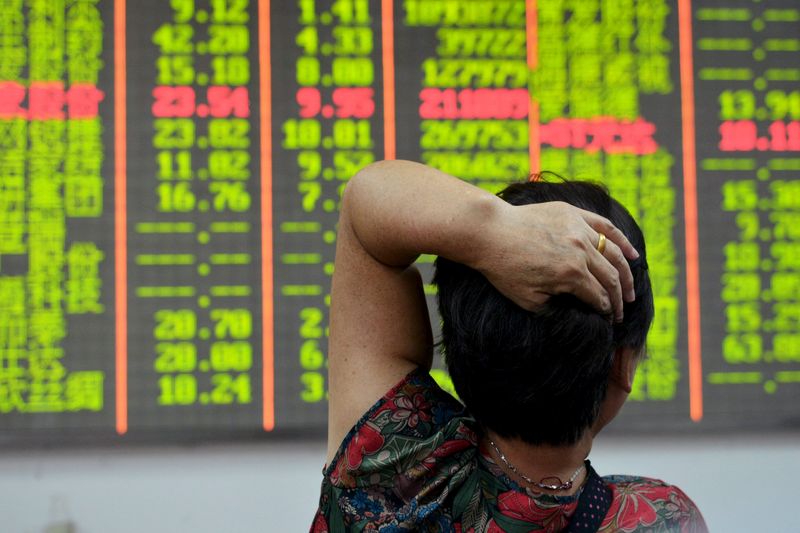By Tariro Mzezewa
NEW YORK (Reuters) - The two leading exchange-traded funds focussing on emerging markets have very different exposure to now-vulnerable Chinese stocks and will probably diverge further, a new analysis by S&P Capital IQ shows.
The Vanguard FTSE Emerging Markets Stock Index ETF (P:VWO) recently had 28 percent of its assets invested in China, while Blackrock Inc's (N:BLK) iShares MSCI Emerging Markets ETF (P:EEM) had 24 percent, even though both are index-following broad emerging markets funds.
Chinese stocks fell 6 percent on Tuesday, and further weakness in both that market and China's economy could play out very differently in these two funds.
"Based on the names and country profiles, it should seem they are offering you the same exposure, but they track different indices," said Todd Rosenbluth, director of ETF & mutual fund research at S&P Capital IQ. "Their country exposure is going to be different, and that exposure difference helps explain why they perform differently.
So far, the discrepancy has helped the Vanguard fund, Rosenbluth said, although both funds have taken a hit since the end of June, when the Shanghai Composite Index (SSEC) started falling.
Since then, the Vanguard fund has lost 11.65 percent, while the iShares fund has fallen 12.45 percent. Year to date, the Vanguard fund is down 6.97 percent, and the iShares fund is down 8.89 percent.
Chinese shares have been falling on fears that the nation's economy may slow well beyond the 7 percent growth rate that analysts had earlier suggested would be a bottom for that market. China has moved to weaken its currency to bolster its economy and share prices.
The difference between the two funds is expected to widen because the two different indexes they follow will be treating Chinese stocks differently. FTSE, the Financial Times Stock Exchange, plans to begin adding onshore Chinese equities, known as A-shares, to its broad emerging markets indexes, which Vanguard follows.
The Vanguard benchmark, the FTSE Emerging Index, now has approximately 26 percent exposure to China, according to the mutual fund company.
In June, Vanguard said it would begin shifting to a new FTSE index later this year. The new index will have a 29 percent exposure to China, including a 5.6 percent exposure to A-shares.
MSCI Inc (N:MSCI), however, said in June that it was not ready to include the A-shares in its two emerging market indexes.
"The Vanguard fund's performance will be driven by how well the Chinese stocks do," said Rosenbluth.
A-shares are traded on the Shanghai and Shenzhen stock exchanges and are typically only available to local investors and select qualified foreign investors.

Most foreign investors trade H-shares. These shares of companies incorporated in mainland China are listed on the Hong Kong exchange.